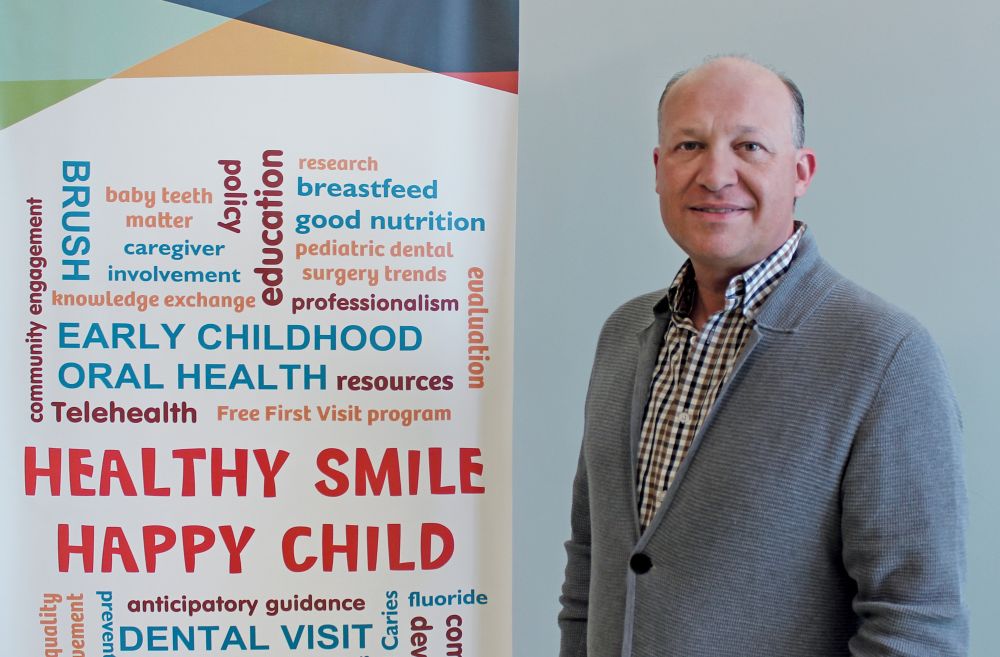Making a difference in the lives of kids who face social and economic inequities drives Canada’s leading expert in early childhood oral health.
Robert Schroth [DMD/96, M.Sc./03, PhD/10], professor of preventive dental science at the Dr. Gerald Niznick College of Dentistry, has dedicated more than 15 years to understanding the oral health of children under the age of six.

“I recognize the importance of setting kids on the right path,” says Schroth, who is also a researcher with the Children’s Hospital Research Institute of Manitoba.
The dentist-scientist has become an international authority on early childhood caries (tooth decay), which in its severe form aggressively damages primary teeth and affects many aspects of kids’ health and well-being.
In a 2016 study, Schroth found that Indigenous children in Canada were more than seven times more likely to undergo dental surgery in hospital for this severe form of caries than other children.
The question of why kids from disadvantaged backgrounds have a high rate of tooth decay has propelled him into more than a dozen research studies.
“We have known for years that early childhood caries is influenced by the oral microbiome,” says the lifelong Winnipegger, who joined UM as a full-time faculty member in 2010.
“But decay is also influenced by genetic variants, and by environmental factors like diet, oral hygiene and access to dental care. The more we can unravel the combined risk factors, the better we can target preventive approaches, such as painting silver diamine fluoride on kids’ teeth. We have shown in clinical trials that it is effective in arresting decay.”
Last year, Schroth was awarded a six-year Applied Public Health Chair by the Canadian Institutes of Health Research (CIHR). In this role, he is focused on research to improve children’s access to oral health care.
He’s currently evaluating the rollout of a caries assessment guide that he developed to help non-oral health professionals – such as doctors and nurses – identify children at risk for tooth decay.
Schroth is also studying the impact of the Canadian Dental Care Plan. He says the plan addresses some of the financial issues related to accessing care, but doesn’t address the lack of dental offices in certain underserved areas of Canada, or barriers like food availability, housing and access to running water.
As a CIHR chair, Schroth can pivot his research if a public health problem arises. One issue he’s watching with concern is the growing anti-water fluoridation movement.
He is currently working with Prashen Chelikani [PhD/04], professor of oral biology, to examine the oral microbiome associated with severe tooth decay in First Nations and Métis preschoolers. That project is combining clinical, bacterial and genetic sequencing data to analyze the overall risk of caries.
“Ten years ago, I wouldn’t have thought this interdisciplinary work was possible,” he says.
Schroth leads the global Early Childhood Caries Advocacy Group and hopes to host a symposium for the organization in Winnipeg.
He says he developed an interest in early childhood caries research because it was a neglected area that he could make his own.
“My passion for research comes from my ability to make discoveries, answer questions, and also to provide evidence of systemic and oral health connections.”
BY MATTHEW KRUCHAK
